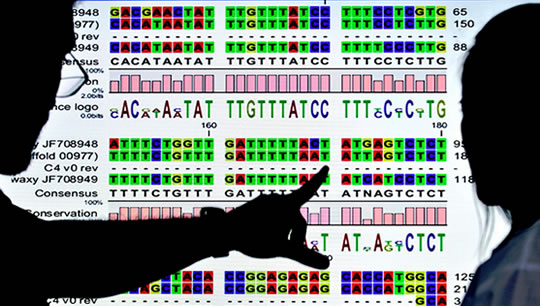New drug given during pregnancy may help treat fragile X syndrome, a leading genetic cause of autism.
The most common form of intellectual disability is caused by a mechanism which shuts of an associated gene, a new study finds.
Scientists at the Weill Cornell Medical College have also shown that a drug can block the silencing mechanism, thereby preventing the most common form of mental disability: fragile X syndrome (Colak et al., 2014).
This points the way towards a therapy for fragile X syndrome — a leading genetic cause of autism — and possibly for 20 other diseases.
Fragile X syndrome causes a wide range of emotional, behavioural and physical problems and occurs mostly in boys.
For around twenty years scientists have known that the cause of fragile X syndrome is the excess repetition of a sequence of genetic code.
The problem was understanding how this code caused the disease.
Now, in a new study, published in the prestigious journal Science, researchers have discovered that this code halts the production of a protein which is crucial to communication within the brain.
To find out how to fix this problem, the researchers used human stem cells from embryos that had tested positive for fragile X syndrome to create brain neurons in the lab.
This gave them a model of how the embryonic brain develops in which to test a new drug developed by Dr. Matthew Disney of the Scripps Research Institute.
After adding the drug, they found that the gene continued to produce the vital protein, instead of being deactivated as it is in fragile X syndrome.
This points the way towards a treatment for fragile X syndrome. One of the study’s authors, Dr. Samie Jaffrey, explained:
“If a pregnant woman is told that her fetus carries the genetic mutation causing fragile X syndrome, we could potentially intervene and give the drug during gestation.
This may delay or prevent the silencing of the fragile X gene, which could potentially significantly improve the outcome of these patients.”
Huntington’s disease
The findings have implications for a range of other diseases because of the biological mechanism that has been discovered.
Other diseases including Jacobsen syndrome, an intellectual disorder, and Huntington’s disease, a neurodegenerative disorder, involve similar repetitions of DNA sequences and so may be amenable to similar treatments.
Dr. Jaffrey said:
“This completely new mechanism by which RNAs can direct gene silencing may be involved in a lot of other diseases. Our hope is that we can find drugs that interfere with this new type of disease process.”
Image credit: Neil Palmer

